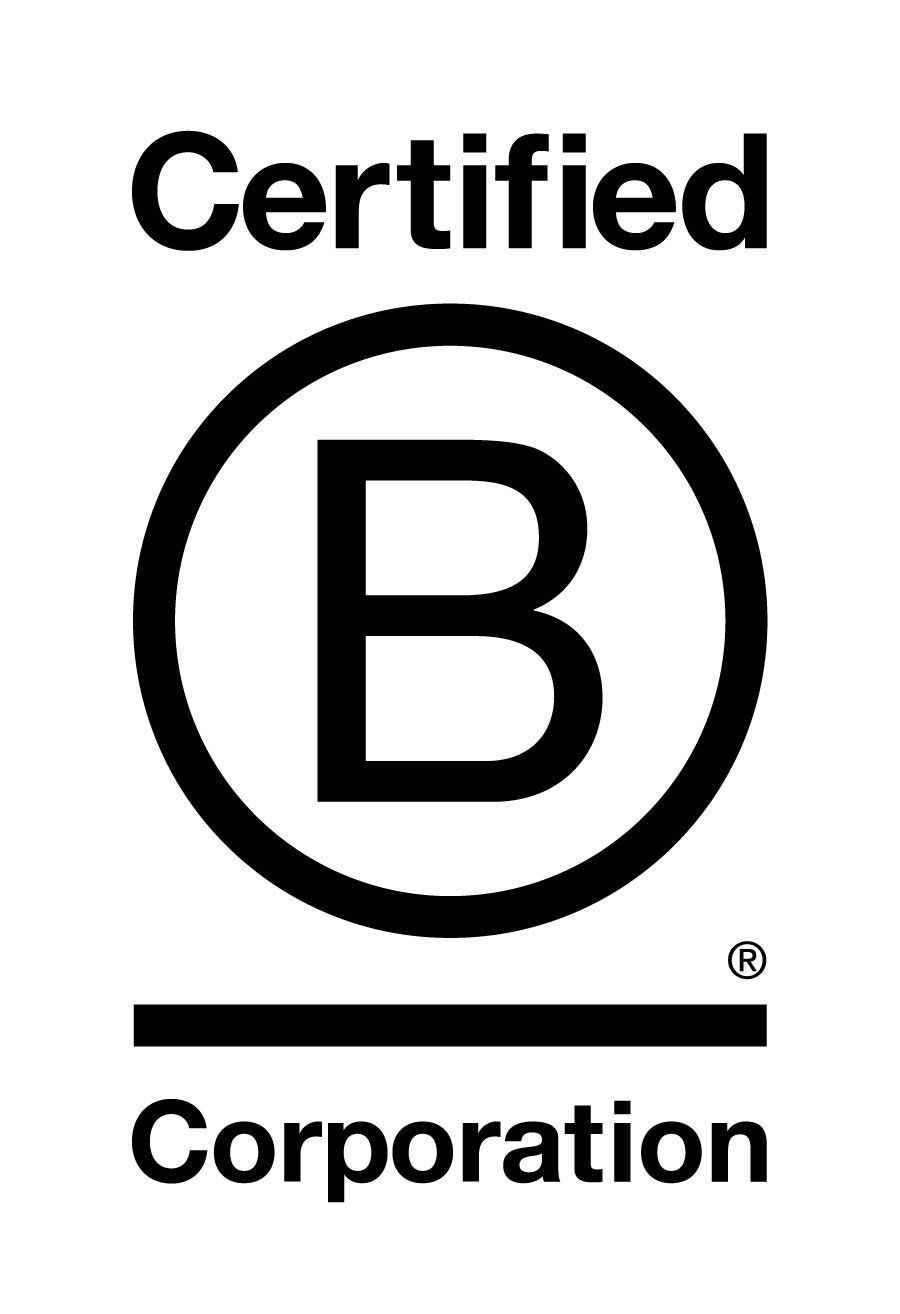Sustainability Champion: What It Is and Why You Need One
- By Kevin Foley
- •
- 30 Apr, 2019

In the previous blog articles, we discussed what sustainability is, why it is important for your business, and how to get started. What we have not yet covered is who should be responsible for spearheading the sustainability program at your organization. The purpose of this article is to provide clarity on who that person is, why they are important and what skills they should possess.
What Is a Sustainability Champion?
In order to successfully launch and grow your sustainability program, you must have a sustainability “champion” or “torch bearer” who is responsible for driving progress and maintaining a high level of engagement in the organization. The sustainability champion takes full responsibility for spearheading the sustainability efforts, and the sustainability program’s success will be directly correlated with the overall effectiveness, drive, and dedication of your sustainability champion.
The responsibility for keeping the sustainability efforts on track needs to fall squarely on one individuals shoulders, or else it can get lost in the shuffle. However, this does not mean one person will single handedly build your program and that everyone else in the organization gets a free pass, in fact, it is far from that. Even the best sustainability champion will only produce marginal results if company leadership and management are not supportive and committed. But to really succeed, one person must be the “owner,” or “guiding hand,” or “program manager” and keep the efforts moving forward.
The responsibility for keeping the sustainability efforts on track needs to fall squarely on one individuals shoulders, or else it can get lost in the shuffle. However, this does not mean one person will single handedly build your program and that everyone else in the organization gets a free pass, in fact, it is far from that. Even the best sustainability champion will only produce marginal results if company leadership and management are not supportive and committed. But to really succeed, one person must be the “owner,” or “guiding hand,” or “program manager” and keep the efforts moving forward.
Choosing Your Sustainability Champion
It is important to think carefully about who the sustainability champion for your organization should be. Creating a successful sustainability program requires creativity, and dedication, along with a healthy investment of time and energy. Without these key ingredients, a sustainability program can not grow and thrive.
So now you must ask yourself, will you be the sustainability champion? Is there another person within the organization that could fit this role and take ownership? Or should you consider hiring someone new from outside the organization, such as a full-time sustainability manager or a part-time sustainability consultant?
Who your sustainability champion will be can often depend on the size of your organization. In many small- and mid-sized businesses, achieving significant value may only require a part-time sustainability champion. If there is someone internal to your organization with a passion for sustainability who can spare the time to take on this role, then that may work. However, a seasoned sustainability consultant may be able to draw on past experiences to implement a new sustainability program more efficiently. It doesn’t matter who you choose or where they come from, but whoever you select needs to have skin in the game, time to invest, and a passion for the end goals.
A famous 17th century Spanish philosopher once said, "The truth is generally seen, rarely heard." (Baltasar Gracián). When your organization starts to experience the positive benefits that accompany a successful sustainability program, you'll know you've chosen the right champion.
So now you must ask yourself, will you be the sustainability champion? Is there another person within the organization that could fit this role and take ownership? Or should you consider hiring someone new from outside the organization, such as a full-time sustainability manager or a part-time sustainability consultant?
Who your sustainability champion will be can often depend on the size of your organization. In many small- and mid-sized businesses, achieving significant value may only require a part-time sustainability champion. If there is someone internal to your organization with a passion for sustainability who can spare the time to take on this role, then that may work. However, a seasoned sustainability consultant may be able to draw on past experiences to implement a new sustainability program more efficiently. It doesn’t matter who you choose or where they come from, but whoever you select needs to have skin in the game, time to invest, and a passion for the end goals.
A famous 17th century Spanish philosopher once said, "The truth is generally seen, rarely heard." (Baltasar Gracián). When your organization starts to experience the positive benefits that accompany a successful sustainability program, you'll know you've chosen the right champion.
A Common Misstep
All too often, responsibility for launching and growing a sustainability program will get pawned off on an operations manager, facilities manager, or even the CEO. They typically end up piling it onto their existing and already full workload, hoping to find time for it down the line. This is a mistake because it severely limits the sustainability program’s potential upside, and more often than not, can result in the sustainability effort taking an early retirement.
The reason these individuals typically struggle to succeed is not a matter of ability or intent, but a matter of time and energy. The schedules of CEOs, facilities managers and operations managers are already booked full. There is no “wiggle room” or “buffer time” in their schedules to play with. They often aren’t able to give sustainability the attention it needs to grow and thrive. As soon as a CEO or operations manager’s job gets too busy, sustainability efforts are one of the first things to go.
This classic scenario of the eyes being bigger than the stomach is all too common. While intentions are usually good, recovering from a loss of momentum for sustainability is hard on both the organization and the people involved in the original effort. Not only may your sustainability program end prematurely before it had time to produce any fruit, but it sends a message to the organization that sustainability is not important, and should only be prioritized when business is easy. Unfortunately, business is never easy, and if you wait around for that day to come you will never reap the benefits associated with launching and growing your sustainability program.
An 18th century English statesman once said, “Whatever is worth doing at all is worth doing well.” (The Earl of Chesterfield 1746). If you’re going to put in the time and energy to launch and grow a sustainability program, then do it right.
While company leadership and operations managers can and should be involved in sustainability efforts, they typically shouldn’t be solely responsible for building and growing the program. Their involvement and contribution to sustainability efforts is essential to maximizing value for all stakeholders (including the company) over both the short- and long-term. However, in order to kick off your sustainability program on the right foot and keep it growing year after year, it is imperative to identify someone with the capacity to develop momentum and attack sustainability head on.
Below is a list of key attributes that an ideal sustainability champion should have. While some items could be learned on the job, many of these skills and characteristics are necessary to be successful.
The reason these individuals typically struggle to succeed is not a matter of ability or intent, but a matter of time and energy. The schedules of CEOs, facilities managers and operations managers are already booked full. There is no “wiggle room” or “buffer time” in their schedules to play with. They often aren’t able to give sustainability the attention it needs to grow and thrive. As soon as a CEO or operations manager’s job gets too busy, sustainability efforts are one of the first things to go.
This classic scenario of the eyes being bigger than the stomach is all too common. While intentions are usually good, recovering from a loss of momentum for sustainability is hard on both the organization and the people involved in the original effort. Not only may your sustainability program end prematurely before it had time to produce any fruit, but it sends a message to the organization that sustainability is not important, and should only be prioritized when business is easy. Unfortunately, business is never easy, and if you wait around for that day to come you will never reap the benefits associated with launching and growing your sustainability program.
An 18th century English statesman once said, “Whatever is worth doing at all is worth doing well.” (The Earl of Chesterfield 1746). If you’re going to put in the time and energy to launch and grow a sustainability program, then do it right.
While company leadership and operations managers can and should be involved in sustainability efforts, they typically shouldn’t be solely responsible for building and growing the program. Their involvement and contribution to sustainability efforts is essential to maximizing value for all stakeholders (including the company) over both the short- and long-term. However, in order to kick off your sustainability program on the right foot and keep it growing year after year, it is imperative to identify someone with the capacity to develop momentum and attack sustainability head on.
Below is a list of key attributes that an ideal sustainability champion should have. While some items could be learned on the job, many of these skills and characteristics are necessary to be successful.
Characteristics of a Sustainability Champion
- Excellent writer and communicator
- Excellent team player
- Possess a breadth and depth of knowledge across a wide range of sustainability topics, including; energy conservation, renewable energy, organizational culture, climate change, waste management, water conservation, grant writing, tax incentives, industry knowledge, etc.
- Possess a comprehensive understanding of the financial incentive landscape
- Excellent project management skills
- Ability to train, motivate, and engage employees
- Ability to design a sustainability program unique to the needs of the business
- Ability to deconstruct, analyze and interpret energy and utility data
- Ability to create and manage budgets
- Ability to help pursue relevant certifications
- Ability to educate and enlighten stakeholders
- Ability to think creatively and keep the program relevant year after year
- Ability to collaborate with sales and marketing to leverage and share best practices
- Ability to keep sustainability program aligned with overall business values and priorities
- Strong internal drive to succeed and make a positive impact through sustainability program implementation
In Summary
Every organization’s situation is going to be a little bit different and there is no one-size fits all solution. The most important thing is simply to get started. Just make sure you’ve got a competent and capable sustainability champion to carry the torch and lead the way. Choose them wisely.
RECENT POSTS→

On a hot summer’s day (almost 110°F...) a few weeks back, after a fuse blew in our 1940’s-era apartment making use of the AC impossible....my wife and I went to the movies. Specifically, we went to a matinee of the new “photorealistic” computer animated remake of Disney’s The Lion King. The original was released in 1994 when I was six years old and was one of my favorite movies growing up. To this day, whenever I hear a Lion King theme song (and especially, the Circle of Life
) I am filled with nostalgia and wonderment.
As an adult watching the new remake nearly 25 years later, I was equally captivated.
As most who have seen the original Lion King can attest, it is chock full of invaluable life lessons. It effectively illustrates examples of leadership, courage, forgiveness, justice, faith and purpose, to name just a few. Like the original film from 1994, the remake did an excellent job of capturing and illustrating all of these lessons. This time around, one lesson that really stuck out to me, which I hadn’t caught in years past, was that of sustainability.
As a 31 year old who has dedicated my entire professional career to sustainability, I am constantly on the lookout for little gems of sustainability wisdom. Whether or not I intend to, I view just about everything through that lens…including Disney remakes of old classics. In this new version of The Lion King, I found one of these gems that I am always looking for. As a quick aside, if you have not seen the Lion King (original or remake), some of what lies ahead could spoil some of the movie for you. If you fall into that category, proceed with caution.
While in the movie theater, I didn’t have a pen and paper with me, and the lights weren’t on...so I was unable to take any notes or write down any quotes related to the gems of sustainability wisdom I witnessed. Since I was still thinking about the movie weeks later, I decided to go back and watch the original movie at home, so that I could take notes, pause and rewind as needed, and see if my observations about this classic movie truly held their own.
As an adult watching the new remake nearly 25 years later, I was equally captivated.
As most who have seen the original Lion King can attest, it is chock full of invaluable life lessons. It effectively illustrates examples of leadership, courage, forgiveness, justice, faith and purpose, to name just a few. Like the original film from 1994, the remake did an excellent job of capturing and illustrating all of these lessons. This time around, one lesson that really stuck out to me, which I hadn’t caught in years past, was that of sustainability.
As a 31 year old who has dedicated my entire professional career to sustainability, I am constantly on the lookout for little gems of sustainability wisdom. Whether or not I intend to, I view just about everything through that lens…including Disney remakes of old classics. In this new version of The Lion King, I found one of these gems that I am always looking for. As a quick aside, if you have not seen the Lion King (original or remake), some of what lies ahead could spoil some of the movie for you. If you fall into that category, proceed with caution.
While in the movie theater, I didn’t have a pen and paper with me, and the lights weren’t on...so I was unable to take any notes or write down any quotes related to the gems of sustainability wisdom I witnessed. Since I was still thinking about the movie weeks later, I decided to go back and watch the original movie at home, so that I could take notes, pause and rewind as needed, and see if my observations about this classic movie truly held their own.

This month’s blog article takes a look at the supply chain and the role sustainability plays within that system. The conversation is guided by 8 specific questions and is presented in a simple Q & A format. The questions were provided by my colleague, Brody, at Performance Operations.

Earlier this month I completed an 80-hour wilderness medicine training course. It was filled with dozens of lectures, quarts of fake blood and no shortage of hands-on practice - both as a rescuer and a victim. There were approximately 22 students and two seasoned instructors. My classmates came from many different backgrounds, and included backcountry trip leaders and guides, search and rescue volunteers, nursing students, park rangers, and even one sustainability manager & consultant (guess who that was?). The 80 hour course was split evenly between in-class lecture and hands-on practice.

This is the 3rd article in our three-part “Intro to Sustainability Series” and will explain how to get started on your sustainability journey.
If you have not read Part 1 and Part 2 of this series, we suggest you go back and read them. They will give you a solid understanding of what sustainability is and why it is important for organizations like yours.
If you have not read Part 1 and Part 2 of this series, we suggest you go back and read them. They will give you a solid understanding of what sustainability is and why it is important for organizations like yours.


